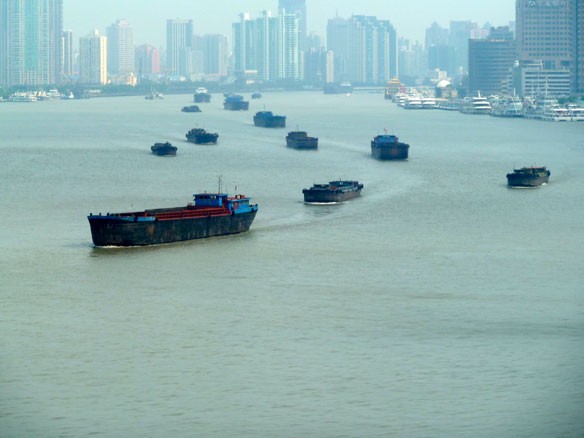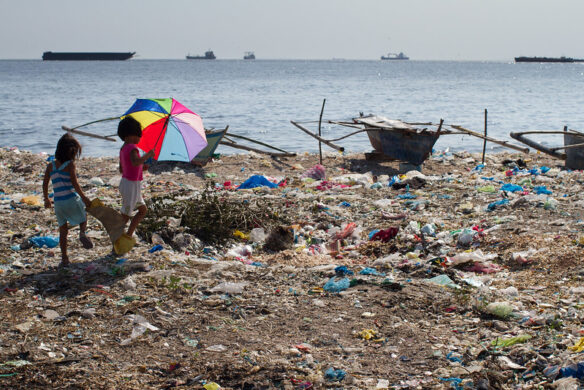
Photograph: © SAF — Coastal Care
Excerpts;
By 2020, the global shipping fleet will be required to slash the noxious emissions from thick, sulfur-laden “bunker” fuel, a move that is expected to sharply reduce air pollution and prevent millions of cases of childhood asthma and other respiratory ailments…
Read Full Article, Yale e360 (06-28-2018)
Container ships use super-dirty fuel. That needs to change; WIRED (11-09-2017)
About 90 percent of everything we buy will travel on ships like these at some point. And all of these behemoths burn fossil fuel, contributing significantly to the warming atmosphere and shifting climate patterns…
Ship engine emissions adversely affect the health of inhabitants of coastal regions; Science Daily (07-19-2016)
Ship emissions adversely affect the health of inhabitants of coastal regions. This was the main finding of a study on the influence of ship engine emissions on macrophages in the lungs. Since macrophages also play a key role in lung diseases such as COPD, the study is important for understanding the health risks of ship exhausts…
Sea Traffic Pollutes Our Lungs More Than Previously Thought, Science Daily (11-20-2015)
New data show that the air along the coasts is full of hazardous nanoparticles from sea traffic. Almost half of the measured particles stem from sea traffic emissions, while the rest is deemed to be mainly from cars but also industries and natural particles from the sea…
A Satellite’s View of Ship Pollution; NASA (02-07-2013)
Powering ships with plastic in Amsterdam; UNEP (07-09-2018)
Europe Takes First Steps in Electrifying World’s Shipping Fleets; Yale E360 (02-22-2018)
Container ships, tankers, freighters, and cruise liners are a significant source of CO2 emissions and other pollutants. Led by Norway, Europe is beginning to electrify its coastal vessels – but the task of greening the high seas fleet is far more daunting…
“FREIGHTENED – The Real Price of Shipping,” a movie by multi award-winning filmmaker Denis Delestrac-©-2016; (03-31-2016)
90% of the goods we consume in the West are manufactured in far-off lands and brought to us by ship. The cargo shipping industry is a key player in world economy and forms the basis of our very model of modern civilisation; without it, it would be impossible to fulfil the ever-increasing demands of our societies. Yet the functioning and regulations of this business remain largely obscure to many, and its hidden costs affect us all. Due to their size, freight ships no longer fit in traditional city harbours; they have moved out of the public’s eye, behind barriers and check points…









